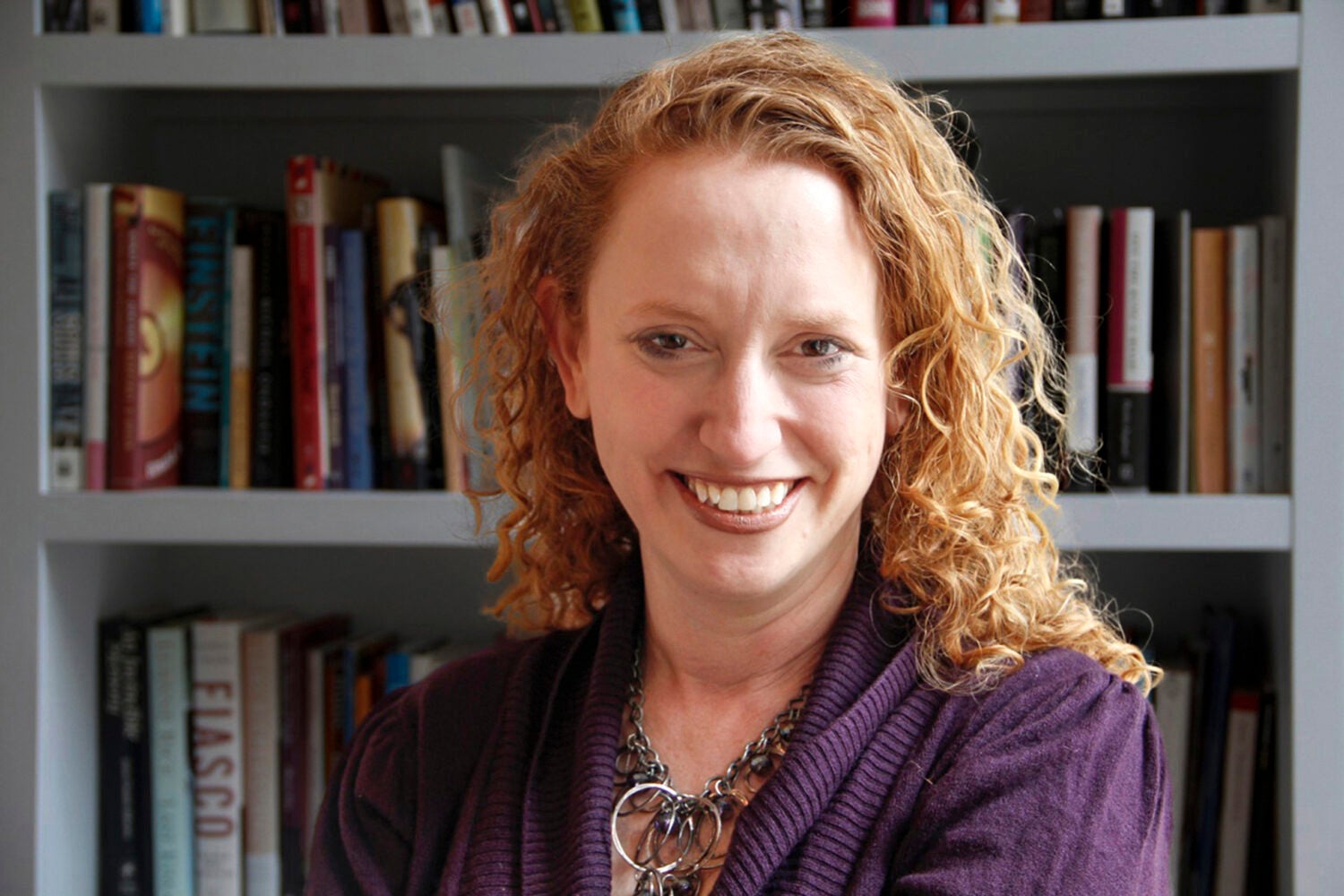When PEN America marked its 100th anniversary last fall, the celebration included an exhibit at the New-York Historical Society that tracked the organization’s evolution. In its earliest days, the nonprofit — which is dedicated to supporting freedom of expression and access to the ideas and work of writers — was a clubby society of poets, essayists, and novelists, offering writers a mutual support network with a strong social component: Guests at the group’s first meeting in 1922, held at New York’s Coffee Club House, dined on lamb chops and broiled shad.
The PEN America of today — with offices in New York, Los Angeles, and Washington, D.C. — remains staunchly in the corner of writers around the world; but the nonprofit’s reach has expanded exponentially over the years, accelerating with particular speed in the decade since Suzanne Nossel ’96 was named CEO in 2013. In a time of rampant disinformation, book bans, and nonstop social media, for example, a librarian can go to PEN’s website for clear guidance on how to handle harassment from angry, and on some occasions even potentially violent, patrons challenging the availability of certain titles. A teenager bullied on social media can also turn to PEN for concrete, actionable advice on how to protect herself. And the organization’s News Consumers’ Bill of Rights and Responsibilities offers a blueprint for steering a clear path through thickets of media disinformation, in addition to reminding readers of their own role in fostering a healthy exchange of ideas.
“We really try to bring together groups of people from across the political spectrum to show that disagreement can happen in a reasoned way, where there’s a genuine give-and-take and people actually listen to each other.”
PEN America does more than just offer online resources, however; under Nossel, it’s also a frequent convener and instigator of public discourse, supporting the right to freedom of expression on both sides of the aisle. “We really try to bring together groups of people from across the political spectrum to show that disagreement can happen in a reasoned way, where there’s a genuine give-and-take and people actually listen to each other,” Nossel says. “It’s so important to create opportunities for that in our pitched and polarized discourse — that’s a role PEN America can and must play.”
The case for free speech, and the very conscious, thoughtful effort required to sustain it, are also driving forces behind Nossel’s 2020 book, “Dare to Speak: Defending Free Speech for All,” which Margaret Atwood called “a must-read for writers, speakers, teachers, journalists, and, well, anyone who talks.”
That book, and Nossel’s commitment to PEN America (where the organization’s membership, budget, and staff have doubled during her tenure), are the continuation of an established career dedicated to human rights and freedom of expression in the public, private, and nonprofit sectors. In addition to having served as executive director of Amnesty International USA and COO of Human Rights Watch, Nossel was deputy assistant secretary of state for international organizations during the first term of President Barack Obama ’91, leading U.S. engagement at the U.N. on humanitarian issues. The granddaughter of German Jewish refugees who settled in Cape Town, South Africa, she saw the disconnect between apartheid’s stark reality and her suburban New York existence when visiting relatives as a girl — an experience that inspired one of Nossel’s earliest engagements as a human rights advocate, working to help implement South Africa’s National Peace Accord in the early 1990s.
“I had a ringside seat for this inspirational, breakthrough moment, when people were gaining the right to vote and have a say in their government for the first time,” she recalls. “It kindled for me a deep passion for standing with those who are repressed and daring to express themselves.”
With the midterm elections in the rearview mirror and the 2024 presidential election approaching, Nossel says in the months ahead she and others at PEN will be keeping a close watch on “the place of truth in American society, and whether disinformation dating back to the 2020 election remains a political force in our public life, or subsides — that will be an important litmus test of being able to return to a less polarized political environment.” A member of the independent Facebook Oversight Board since April 2021, Nossel also expects to see an uptick in debate over regulation of free speech in the digital sphere. “New laws are being introduced in the States and the EU,” she says. “I think we’re going to learn more about how that regulation works, and how it may need to be refined.”
